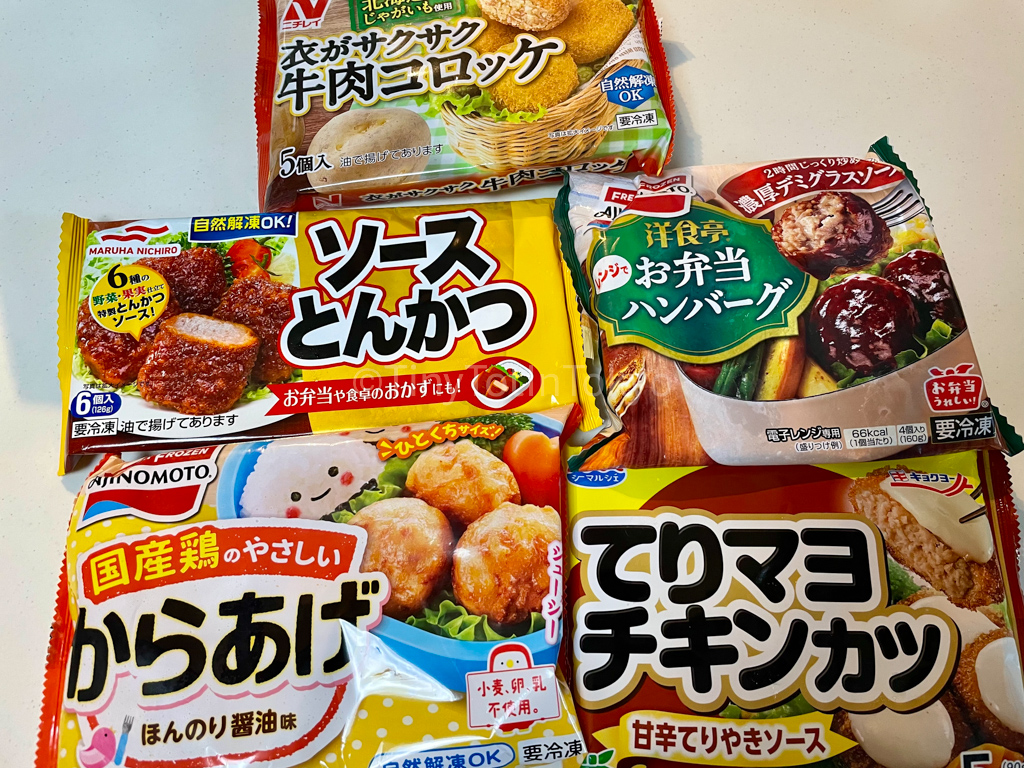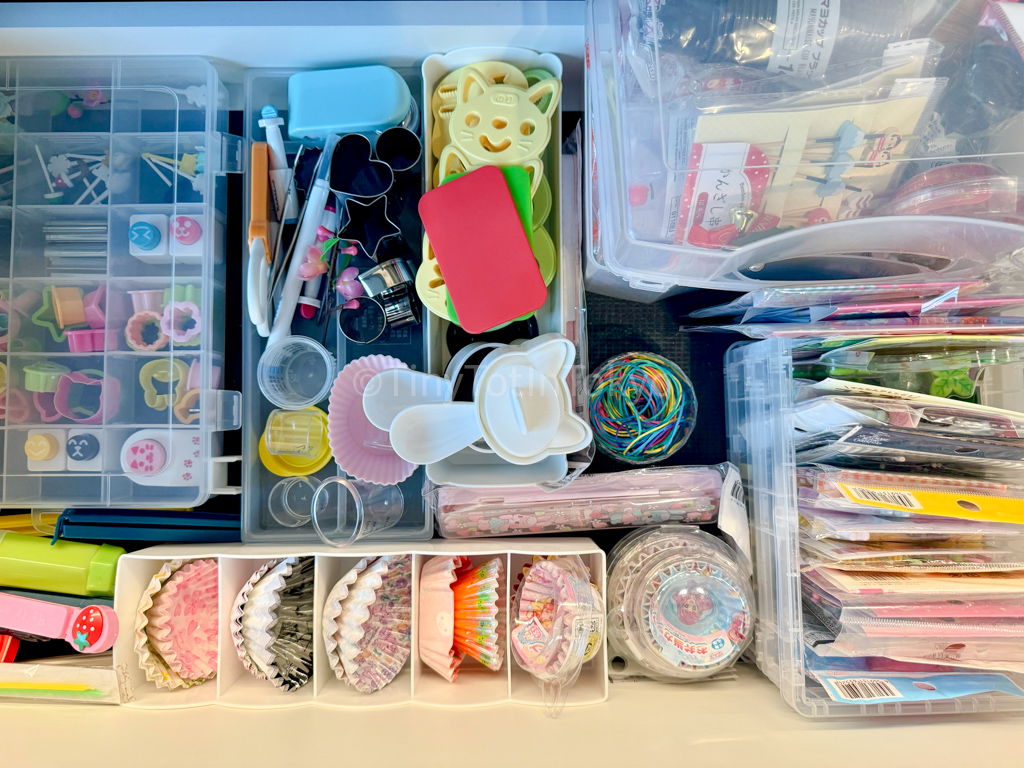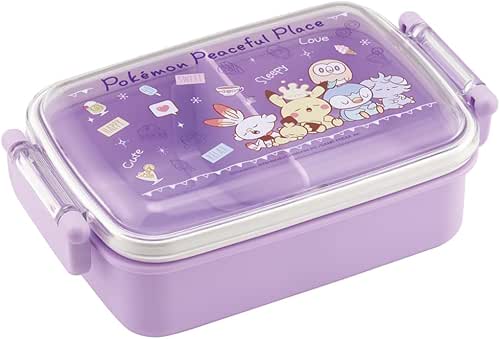How to Make an Easy Bento Box School Lunch for Kids

Last Updated on September 3, 2025 by Kay
This post may contain affiliate links, meaning I may earn a small commission on any purchases through those links at zero additional cost to you. Whatever I make goes to keeping this website running and I am forever grateful for the support. See my Privacy Policy for more information.
Wondering what to make your kid for lunch? How about a bento?
Contrary to popular belief, a bento box doesn’t have to be filled exclusively with Japanese (or Asian) food. You can put whatever you like in it! It also doesn’t have to take that much time. There are so many ways you can make bentos and how you make it and what you put into it depends entirely on you (and what your child likes, of course)!
In this article, I will share how to make easy and cute bentos for your child that are guaranteed to put a smile on their face. The bentos I make, which are far from perfect, certainly make my daughter happy!
Table of Contents
What is a Bento?
Just in case, let’s cover the basics of what a bento is.
Bentos are lunch boxes in Japan filled to the brim with small portions of healthy and balanced food. Typically, they contain one protein dish, a vegetable dish, and a carb like rice.
The carb tends to be the staple dish and should take up about half the bento. Although I have seen Japanese bentos with sandwiches and pasta in them, rice is the most common carb of choice for bentos in Japan.
The remaining half of the bento should be split between vegetables and protein.
When it comes to the size of the bento, typically it’s around 400 to 700 grams for children ages three to ten. But of course, the size depends on how much your child can eat.
When my daughter was four, I used a 400 ml bento for her. From ages five to six, she needed an additional onigiri (rice ball), which I would cover with Saran Wrap.
Bentos also contain dishes that typically don’t need to be reheated. I remember feeling a bit strange about eating lukewarm food instead of hot when I first moved to Japan a few years ago. But I quickly got used to it.
Remember to heat certain dishes such as rice or chicken before putting them in the bento!
Some parents make everything from scratch the morning of but personally, I don’t do that with anything other than rice. I set a timer for the rice cooker so the rice is nice and fresh in the morning since my daughter doesn’t like reheated rice. I also find it easier to use fresh rice in things like molds. (I’ll talk about that later.)
If you live in a warmer climate, put an icepack in your child’s bento bag so that the food doesn’t spoil. This is especially important for summer (like in Japan!).
What to Put in a Bento
You might be wondering about side dishes to put in your child’s bento. This is completely up to you!
There are parents in Japan (and elsewhere) who will make the side dishes from scratch or use leftovers. But I like to cheat and use frozen bento items that I bought from the supermarket. My daughter is happy, I’m happy, so everyone wins!

Common side dishes in a traditional Japanese bento may include:
- Vegetables such as steamed broccoli and fresh cherry tomatoes
- Karaage (fried chicken)
- Candy cheese (not actually candy, just round balls of cheese). You can also cut up string cheese and put it in a bento cup.
- Potato salad
- Small croquettes
- Sausage
- Fruit
I was born and raised in Canada, so when I think about North American foods I grew up with, here’s what I would put in a bento:
- A small portion of leftover mac and cheese, potato salad, or macaroni salad in a bento cup (will cover bento cups further down in the article)
- Veggies and fruits (universal, right?)
- Cheese and crackers
- A sandwich cut into four, better if the crust is cut off (which my poor husband then eats for breakfast)
Bentos for Kids in Japan and Charaben (Kyaraben)
Bentos for kids in Japan are not complicated, although at first, it may seem that way, especially when it comes to charaben or kyaraben.
Charaben is short for “character bento” and is a bento made to feature a cartoon character or mascot. Typically, the rice is formed to make that character.
For instance, my daughter likes Totoro, so I use molds or even saran wrap to create Chibi Totoro out of rice. That will be the “star” of the bento. Afterward, I decorate Chibi Totoro using things like nori (dried seaweed) for the face and make a makkuro kurosuke (soot sprite) out of a small meat patty and use a slice of white cheese for the eyes.
View this post on Instagram
Charaben can be intimidating but it is super fun because you get the chance to be creative.
If you want to make a charaben, I suggest looking up an image of the character online the day before and then seeing how you can create it using the ingredients you have on hand.
I cannot stress enough how important planning ahead of time is! This way you know if you have to go out and buy something additional to make your bento.
I also suggest using fresh rice since it’s easier to use in a bento mold.
What You Need to Make a Charaben

Here are some of my essential and helpful ingredients when it comes to making charaben:
- Ham: You can use this to create dresses, blankets, the pink inner part of animal ears, bows, etc.
- Dried fried seaweed (nori): I use these kinds because they’re small and just the right size for cutting out faces and so forth.
- Sliced cheese: These are great for cutting out white parts, for eyes for instance.
- Imitation crab: My daughter doesn’t like this for some reason (despite how much she loves crab) but these are great when you need to make something red like a bow or Santa’s outfit!
- Sausages: Great for noses, for instance on Rudolph.
- Lettuce: People use these as dividers or to add more color to the bento.
And here are some useful bento supplies:
- Bento tweezers: I use these to pick up small things like round circles for eyes that I have punched out of nori using nori punches. (Also available on Amazon.com)
- Nori punches: I love using these to make faces! (Also available on Amazon.com)
- Scissors: These are smaller ones specific for making bentos and are perfect for cutting up nori into different shapes. (Also available on Amazon.com)
- Rice molds: You can buy these in various shapes, such as triangles, flowers, or even little balls. There are sets as well that come with both the mold and the nori punch. (Also available on Amazon.com)
- Picks: I use these for my daughter’s fruits, and they come in many cute and fun designs. Be careful, though, as they can be a choking hazard, especially if your child likes to chew on things. (Also available on Amazon.com)
- Fruit or vegetable cutters: These come in shapes like stars, flowers, and hearts. Just push it through your fruit or veggie, take the piece out of the cutter, and then slice it up. If you’re using a hard veggie like carrot, make sure you steam it first to help make the process easier. (Also available on Amazon.com)
- Bento cups: These are great for putting side dishes inside, like potato salad. These come in disposable ones as well as reusable silicone cups. (Also available on Amazon.com)
- Bento box: This is the most important supply! Can’t have a bento without it! (Also available on Amazon.com)
Many of these items can be found at the 100 yen store in Japan, but I am not a fan of their nori punches because they just don’t cut through the nori.
If you’re interested in learning how to make a charaben under the instruction of a teacher, there are classes in Japan that teach you all the basics!
How to Make an Easy Bento Box Lunch for Kids
View this post on Instagram
Charaben are a level up from easy bento box lunches. But there is nothing wrong with making a simple bento box, especially when you’re short on time.
As mentioned earlier, I use frozen side dishes but I know those are not necessarily available in every country.
Here are some ideas on how to make your bento cute using simple tools and ingredients:
- Use a rice mold to create a shape out of rice (use short grain rice because long grain is less starchy so it is less likely to stick together and will fall apart)
- Cut a sandwich into triangles and add bento picks to make it cuter
- Add steamed broccoli and cherry tomatoes for color
- Wrap a rice ball with a character rice ball wrap
- Use decorative fish chips
- Use colorful furikake
I’ve also heard of some parents in Japan going to convenience stores, buying a bento and just putting the contents inside a cute kids’ bento box. Whatever works!
Here’s a quick video I did on how to make an easy Christmas bento for kids, which will give you an idea of my process.
View this post on Instagram
Helpful Books on How to Make Bentos for Kids
There are lots of resources out there when it comes to figuring out how to make a bento for your child.
Here are some of my favorites.
かわいい子どものおべんとう (Cute Bentos for Kids)
This book shows how to make cute bentos for an entire month with step-by-step guides.
Note that this book is in Japanese only but you can still purchase it on Amazon.com.
はじめての園児のおべんとう (First Bento for Preschoolers)
What I like about this book is that it not only shows how to make each bento but also shares recipes for preparing dishes to freeze as well.
This book is in Japanese only.
Although I haven’t read these, I thought I should share below what looks like good books in English about preparing bentos for kids.
Disney Bento — Fun Recipes for Bento Boxes
Bento Blast!: More Than 150 Cute and Clever Bento Box Meals for Your Kids
Yum-Yum Bento Box: Fresh Recipes for Adorable Lunches
Wrap-up: How to Make an Easy Bento Box for Kids
I hope this look at making bentos for kids has been helpful to you. It’s really not that hard and your bento doesn’t need to look perfect by any means! Just have fun with it and I guarantee your kid will be happy with whatever you make them.
After all, one of the most important things to go into a bento is love!










